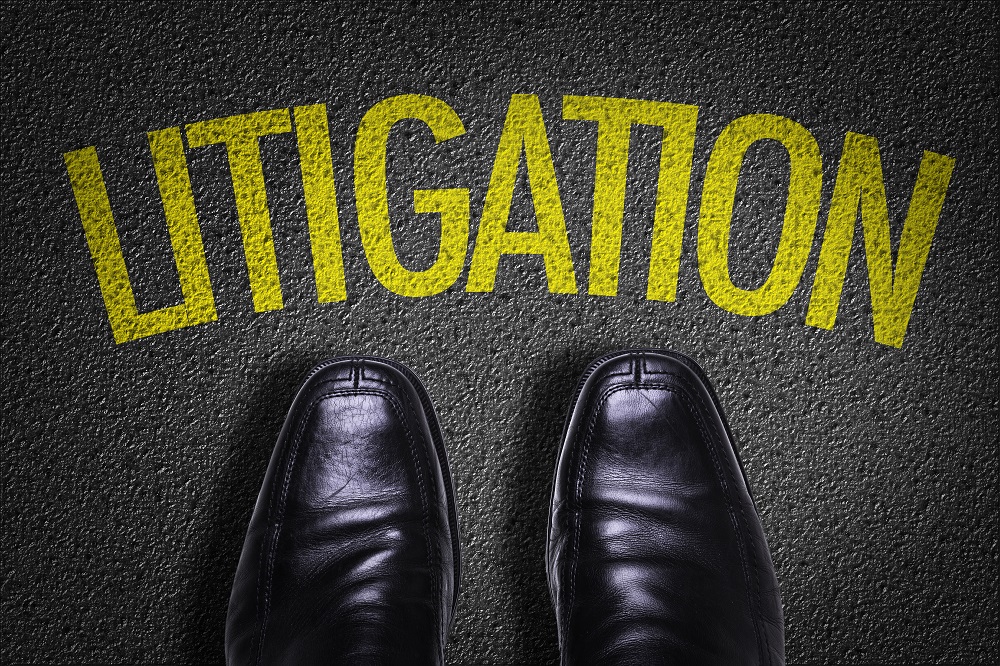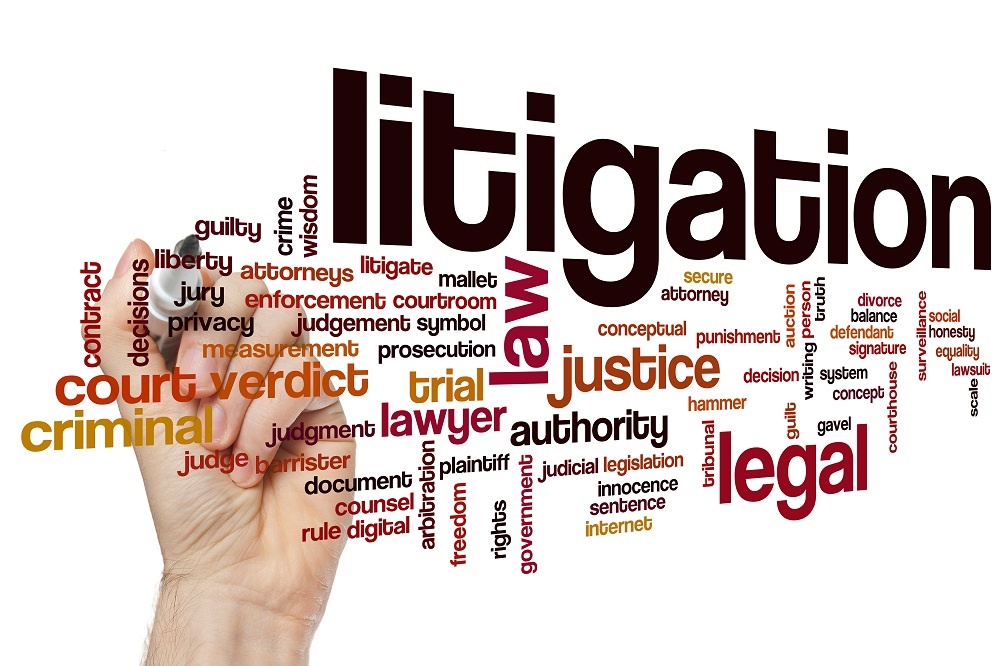Vexatious Litigation – It Doesn’t Always Pay to Sue in Arizona
 A bill signed into law by Jan Brewer at the end of 2014, titled statute 12-3201 (the Vexatious Litigant statute), is unique in its defense of the defense. Across the world, in countries like the United States, the UK, Australia, and New Zealand, the declaration of vexatious litigation is seldom made, and even more seldom ruled upon. For instance, Australia has only declared three people vexatious litigants in the country’s history, and other countries and states in the United States have complicated appeals processes and a multiple strikes system to determine vexatious litigation. In contrast, the Arizona law now allows a judge to make a determination based upon a series of definitions, from which he or she is able to bar that person from making further motions.
A bill signed into law by Jan Brewer at the end of 2014, titled statute 12-3201 (the Vexatious Litigant statute), is unique in its defense of the defense. Across the world, in countries like the United States, the UK, Australia, and New Zealand, the declaration of vexatious litigation is seldom made, and even more seldom ruled upon. For instance, Australia has only declared three people vexatious litigants in the country’s history, and other countries and states in the United States have complicated appeals processes and a multiple strikes system to determine vexatious litigation. In contrast, the Arizona law now allows a judge to make a determination based upon a series of definitions, from which he or she is able to bar that person from making further motions.
What are these definitions?
Formally, vexatious litigation is a legal action which is brought before the court solely for the purpose to harass, defame, or subdue an opponent. According to the Arizona law, vexatious litigation is defined as one or more of the following:
- Repeated filing of court actions solely or primarily for the purpose of harassment.
- Unreasonably expanding or delaying court proceedings.
- Court actions brought or defended without substantial justification.
- Engaging in abuse of discovery or conduct in discovery that has resulted in the imposition of sanctions against the pro se litigant.
- A pattern of making unreasonable, repetitive and excessive requests for information.
- Repeated filing of documents or requests for relief that have been the subject of previous rulings by the court in the same litigation.
Most of these definitions are obvious in their application, but are there instances where, as a citizen seeking to file a lawsuit, you should be concerned?
You should not be scared to sue for legitimate purposes:
If you are suing for legitimate reasons, as the vast majority of people are, you should not be concerned. In this case, the term legitimate simply constitutes a lawsuit which is created in response to a justified grievance. Chances are, if you are filing suits without intentionally harassing, defaming, or subduing an opponent, your suits do not fall under the designation of vexatious litigation. This is especially true if you have hired or been assigned an attorney, since this bill has modified the law so that it only applies to pro-se litigants, or litigants who represent themselves in court. Litigants who have attorneys will likely be told by their attorney that their case falls under vexatious litigation if it does, and will not be pursued further. A litigant who has not hired an attorney, however, may file the rare, unintentional vexatious claim, or do so knowing that they will not face contradictory legal advice. If you are considering filing a claim which falls under one of the above definitions, do so with caution, because a judge will likely be aware of your intentions and block further lawsuits, even those which may be legitimate.
Who does this apply to?

As discussed before, this law applies to pro-se litigants, but its determination of a “vexatious litigant” is used very sparingly. One instance of its use arose in the summer of 2015, when a Sun City car salesman by the name of Van Flury was declared a “vexatious litigant” for the use of lawsuits as harassment and driving up fees in various cases. As the owner of a used car lot, his business was predicated on getting the cheapest possible prices on cars at state-wide auctions. He used the courts to sue these various individuals and auction houses to reap even more profit from busy or exasperated people who are forced to settle out of court as a necessity. For Van Flury, to get one thousand or two thousand extra just for filing an appeal was lucrative for his business, but was something which was neither morally nor legally upstanding. When Van attempted to file for bankruptcy when his business eventually fell apart, the bankruptcy court threw his file away, and declared him a vexatious litigant.
It is clear that this law is not designed to punish all pro-se litigants, or even litigants who sue multiple times. After all, some individuals do have grounds for their lawsuits, regardless of how numerous. Additionally, the courts of Arizona are very clear that they consider access to courts a fundamental right, and that any determination of vexation is very carefully deliberated and used only in the most apparent of circumstances. This law is very clear in its application, and that is to stop litigants who are suing to intentionally defame, harass, or profit from an adversarial party.
Is this law fair to only target pro-se litigants?
Some opponents of vexatious litigation laws argue that Arizona’s decision to only target pro-se litigants is a breach of the fourteenth amendment, which encompasses equal treatment under the law. While it is true that pro-se litigants are the more likely group to exploit the courts, it is not inconceivable that a lawyer would aid a client in exploiting the system for financial gain. This law eliminates the ability to punish this sort of action.
It could be argued that this vexatious litigation designation lends bias to the judicial system itself, creating a market where prospective vexatious litigants can hire attorneys to lend legitimacy to their fraudulent suits. Moreover, in a pro-se case, a judge is naturally less inclined to respect the opinions of the litigant, since the very system is designed to scrutinize the pro-se litigant to a greater extent than a professionally represented litigant.
Others, counter to the promises made to assign this designation sparingly, complain about the overuse of the vexatious litigation term. This is especially true in family law, where many claim that the term is used to quell appeals of redress in the child’s best interest. In fact, there is a petition online which calls for the abolition of the family vexatious litigation law in California. This petition insists that the current family law clause does not fairly represent the ideals of the bill, which is to stop “baseless attempts to change a custody or visitation order through excessive litigation.” Often, according to this group, the intentions of the bill stand in opposition to its practice, which is to provide the best childhood for the respective child. For the legal definition of vexatious litigation click here.
What to do if you are a target of vexatious litigation:

Even if you are not the litigant in question, you may be the target of a particularly overzealous litigant who wants nothing more than to destroy your finances or reputation. If that is the case, and you are confident that their appeals fall under the blanket of vexatious litigation, follow these steps:
1: Do not settle outside of court!
Settling outside of court is exactly what the vexatious litigant wants. They are expecting and hoping that you are a busy person who does not have the time or money to go to court. They want you to pay the modest fees they are asking and move on without the risk of a judge labeling them a “vexatious litigant.” If you give in, they will simply continue filing ridiculous claims toward you and others.
2: Once in court, hire a good attorney:
If the litigant is representing himself or herself (which they are almost guaranteed to be), it would be in your best interest to hire an attorney. Not only will it give your case more legitimacy than theirs, but it will provide you a guaranteed game-plan for revealing the illegality in the litigant’s appeals. In many cases, once the litigant is revealed to be vexatious, the defendant can appeal to have his/her legal fees paid for by the litigant. However, it is very important that you don’t “cry wolf,” or claim false vexatious litigation. To attempt to exploit someone’s “pro-se” status is just as shameful as being a vexatious litigant, and the judge will likely see right through it, weakening your claim.
3: Try to discuss the case civilly:
This option is relevant when the litigant is somebody you know. For instance, if your ex-spouse is making constant appeals on visitation, guardianship, etc. which could be considered vexatious litigation, it may be beneficial to discuss the ramifications of these continued appeals. Explain that this person may be labeled a vexatious litigant, and barred from making future appeals. Often, a vexatious litigant’s motivations are contained within the term itself- they are vexed, annoyed, frustrated. Talking to or educating someone who is motivated by a deep personal issue, rather than by a motivation to exploit or disparage, may be the best way to prevent future legal strife for both the litigation and the defense.
How will this law affect you?
For the most part, it won’t. Most people are rarely involved in lawsuits, and when they are, the lawsuit is made on legitimate grounds. This law is more designed to prevent extremely litigious people and businesses from using the nature of the courts to their advantage. A person or business understands that going to court is an incredibly lengthy and expensive process, and the very threat of invoking the courts is often enough to yield some sort of financial benefit. Although Arizona courts have always had a system of appeals to defend against this sort of corruption, statute 12-3201 formalizes the standards of appeal, and renders judges a sovereign force to deal with these sorts of cases.
However, it is yet to be seen how this bill will affect pro-se litigants in the future. Some argue that this bill will foster unnecessary bias toward the pro-se litigant, regardless of whether or not they are vexatious. Although everyone is supposed to be granted equal treatment under the 14th amendment, this bill could feasibly create a vacuum where corrupt lawyers are paid to lend false legitimacy to vexatious suits due to their newly granted immunity. Moreover, businesses large enough to have a legal staff will be disproportionately capable of wielding the courts to their advantage, something which the bill is expressly meant to stop.
We will have to wait and see if this bill creates the unwanted circumstances the opponents fear, but for now, unless you are an Arizonan who profits off of the misuse of the courts, this law will grant you an enhanced peace of mind entering legal negotiations in the future. Click on this link for an article regarding vexatious litigation in Forbes.
Interested in learning more about vexatious litigation laws in the state of Arizona? We’d love to hear from you! Comment below or reach out to us on our social media channels. If you need legal help regarding a matter of vexatious litigation, contact an experienced Phoenix defense attorney today.
